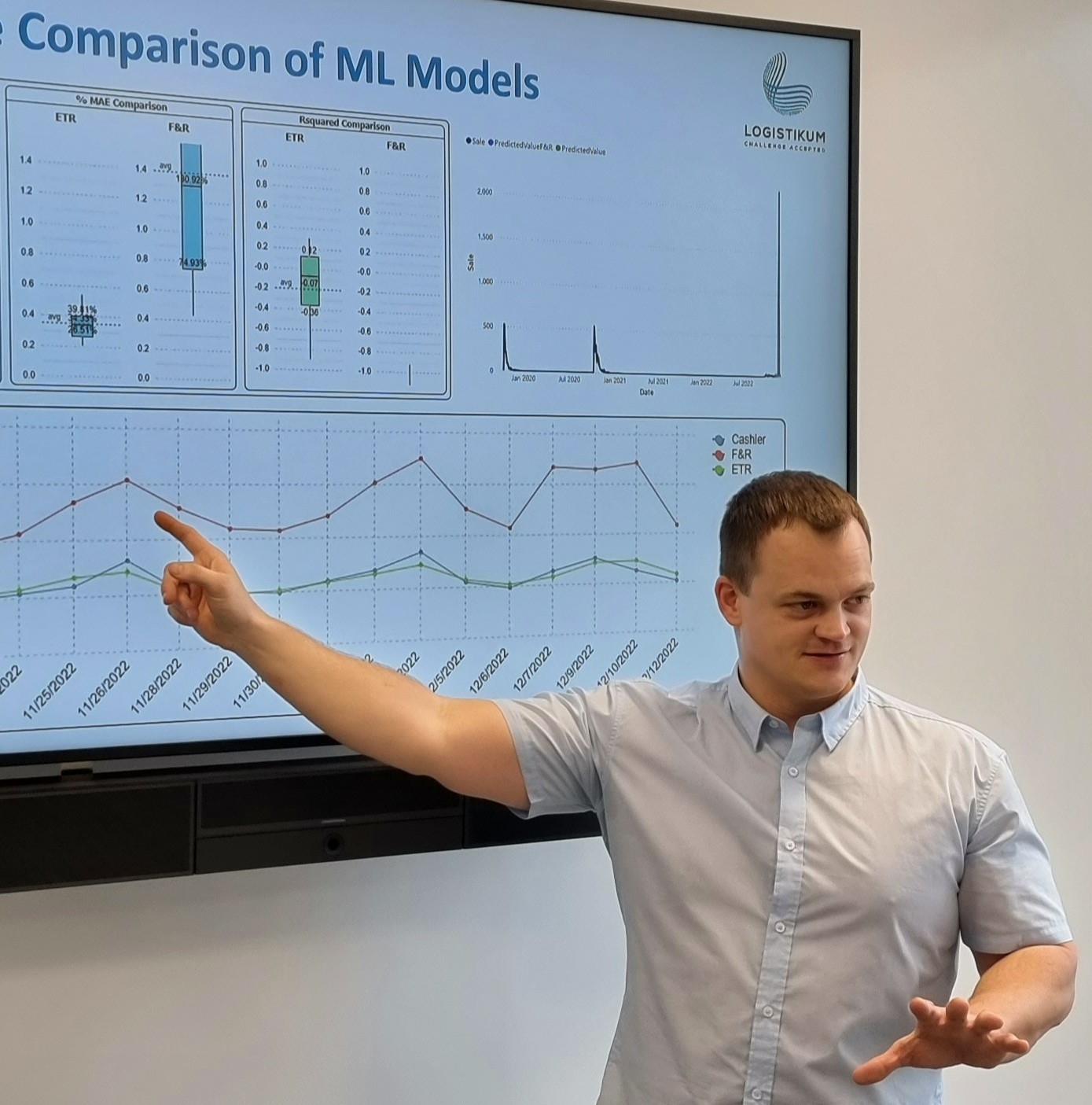JR Centre for Predictive Value Network Intelligence
Head of research unit
Commercial Partner
Duration
Thematic Cluster


This JR Centre leverages the power of data-driven predictive analytics in value networks to reduce the complexity of supply chain management decision-making.
In today's world, value networks (VN) are characterised by enormous uncertainty. This is caused by volatile customer requirements, shorter product and technology lifecycles, supplier failures and complex network structures and is further exacerbated by globalisation, digitalisation, disruptions such as COVID-19, material shortages and the increased importance of sustainability. By using predictive analytics (PA), uncertainties can be reduced in a targeted manner with the help of data-based decisions. Such "predictive intelligence" is becoming increasingly relevant due to the rapidly growing volume of data in complex and globally networked WNs.
The aim of this JR Centre is to use predictive intelligence to reduce uncertainty in WNs and to develop an intelligent decision support system (IDSS) from this. WNs are defined as networks of independent companies that are in relationships to optimally fulfil customer needs. In the context of supply chain management (SCM), "optimal" means fulfilling demand as efficiently as possible with low stock levels and minimised operating costs. In combination with machine learning (ML) and artificial intelligence (AI), PA enables large volumes of data to be analysed and patterns to be identified. These patterns can be used to predict the probability of occurrence and the impact of uncertain events.
Many companies lack the necessary technical and organisational skills. This JR Centre aims to implement PA-based decision support with appropriate interfaces to existing systems in companies. This approach enables companies to i) define the right questions to ask of data sets, ii) identify the data sets needed to answer these questions, iii) select powerful PA algorithms and iv) implement predictive intelligence in the form of IDSS solutions in SCM. These solutions should correspond to the needs, goals, structures, culture and IT landscape of the respective companies.
By using PA, this JR Centre is changing traditional SCM from reactive measures to proactive, predictive decisions. As a result, decision-making in SCM is based on valid information and companies can prepare for impending, uncertain events and react accordingly."

Christian Doppler Forschungsgesellschaft
Boltzmanngasse 20/1/3 | 1090 Wien | Tel: +43 1 5042205 | Fax: +43 1 5042205-20 | office@cdg.ac.at

